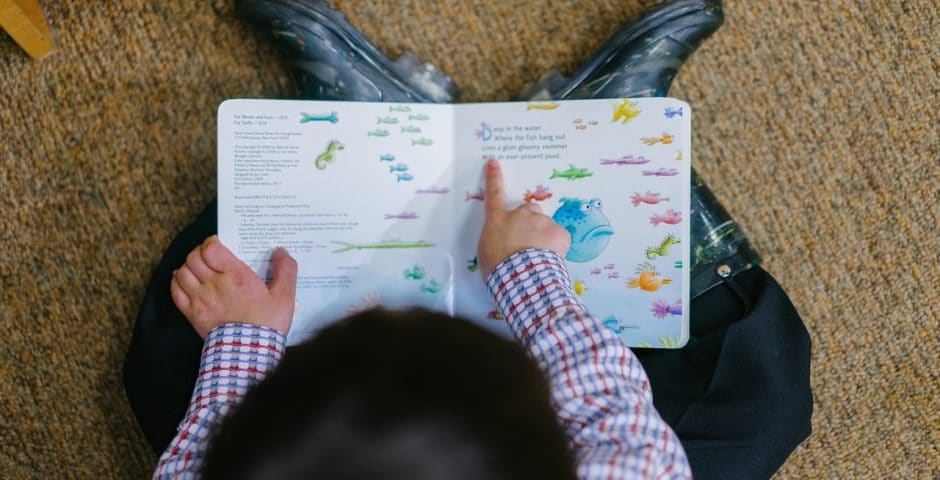
15 Strategies to Raise Responsible Kids- Self-Esteem, Chores & Routine
5) Assign Age-Appropriate Tasks
Make responsibilities age-appropriate and even use the word “responsibility,” says Alex Barzvi, Ph.D., co-host of the talk show “About Our Kids;” when informing your son about the tasks you expect him to complete on his own. It sounds grown-up and important.
Of course, you cannot expect them to develop a helpful attitude overnight. It helps to steadily increase responsibility in age appropriate ways.
Invite toddlers to put napkins on the table, three-year-olds to set places. Four-year-olds can match socks, and five-year-olds can help you groom the dog. Six-year-olds are ready to clear the table, seven-year-olds to water plants, and eight-year-olds to fold laundry.
Give children a role or responsibility within the family. It is important to give them a task that really matters and let them know exactly why it matters.
Let them choose what they would like to do. Maybe give them two choices, for example: Feeding the family dog is important for both the family and dog and so is taking the dog for a walk. If you give them a choice they will be more likely to cooperate.
Kids (and adults) are also more likely to accept responsibility when we feel our efforts mean something to other people. One way to do this is to introduce teamwork. Families are like teams, and teams do their best when everyone has a valued role, even a small one.
You could teach teamwork with one family member sweeping, while the other holds the dustpan. One family member clears the table, while someone else rinses the dishes, and a the third loads the dishwasher. Put some fun music on while you are doing this.
Once in a while, celebrating with a fun activity for the family after everyone pitches in can get the message across.
For more age-related chores, including tweens and teenagers read: KIDS’ RESPONSIBILITIES, EXPECTATIONS & AGE-APPROPRIATE CHORES
When you ask a six-year-old to make their bed, it most likely will be uneven. Do not criticize, recognize a job well done! The next time you make your own bed, show her how you do it. Do your best not to be controlling and take over because it is easier. If the bed is not made perfect, that is okay.
As your children get older, their contributions should increase appropriately, both within and outside the household. Kids need to grow into two kinds of responsibilities 1) their own self-care, and 2) contributing to the family welfare.
Research indicates that kids who help around the house are also more likely to offer help in other situations than kids who simply participate in their own self-care.
6) Avoid Rewards
At least at first. There is a time and place for rewards and allowances, but experts agree that being responsible isn’t it. Do not assume a reward system has to be in place for your child to learn responsibility. While a reward chart can be effective for some kids, others respond just as well to praise, spending time with you and feeling the boost in their self-confidence.
Save rewards for tasks that go above and beyond what you expect to be your child’s normal household responsibilities.
7) Give Appropriate Thanks and Feedback
Another aspect of human nature is that we all want to feel appreciated. We do not have to go overboard and make a huge deal out of it when they help out–a simple and matter-of-fact statement like “I really appreciated your help,” or “Thanks, that was a big help” will suffice. As kids assume more responsibility, this can coincide with gaining more privileges, yet another way we show our appreciation.
Save the over the top praises for something thay have really gone above and beyond for. This allows for our praises to really mean something and not just be automatic for everything.
8) Ask your Child to do the Thinking
It is important to help keep a child focused on their routine list. For instance, to the child who is not getting ready for school, instead of ordering “Brush your teeth! Do your hair!” you could ask, “What’s the next thing you need to do to get ready for school?”
For younger children you can use routine cards to help if you wish. You can make some together or you can get some free printable here. Or buy some here. Kids with ADHD and Autism especially respond well to visual cards and charts.
9) Make Chores Fun
“By incorporating some fun into tasks, you can improve your kid’s attitude about helping with housework,” says Lea Schneider, author of Growing Up Organized: A Mom-to-Mom Guide. “Put on some music and encourage him to sing or dance while he’s cleaning up. That’s why that cleanup song in preschool is so effective.”
Create contests to keep him interested–and help messes evaporate–such as “Let’s see how many toys we can put away before this song finishes playing.”
One Mama created a fun activity to teach her young children the art of sorting and folding socks. After teaching them the basic skills, she brought out little boxes labelled with the name of each person in our family. Then, they had fun trying to throw the socks into the boxes. You won’t have as much resistance if they enjoy the work.
Have familiar, clearly identifiable places for belongings to go – books, toys, dress ups, art materials etc.
Build routine tidy up times into your day. For example, before lunch and dinner have a five minute tidy up together. Make this clear by singing a clean up song together or putting on fun music while you do this!
10) Apologize When You Make a Mistake
Kids already know we make mistakes, so it is important to admit them when we do. If we own up to our mistakes without blaming someone or something else, we show our children there is no shame in making mistakes or falling short, especially when we accept responsibility for it. Show them how to apologize.
“I apologize for hurting your feelings when I yelled at you.”
Make amends if you need to.
11) How to Deal with Negative Interactions with Others
Forcing a child to apologize creates many insincere apologizes– these do not help teach your child that sometimes there are amends to be made when you act un-lovingly towards others. Rather, if for example, your child hurts their siblings feelings, take them through a process to help them work out the emotions that caused them to act out in the first place. This will also help them think about other people’s feeling and prevent future incidences.
Begin with asking, “What were you feeling when you ripped up your brother’s drawing?” Next, tie that feeling and action to the effect it had on the other person. “How do you think it made your brother feel when you tore up his drawing?”
After that process, ask her what she can do to make things better between them. By then she may be ready to apologize. Or maybe she would rather make amends by helping him with his chores, spending time doing something he loves or giving him a big hug.
12) We Learn From our Mistakes
Do not rush to help your child out of a challenging situation, instead teach him that mistakes are healthy and that this is how we learn and grow.
When situations arise, be available for problem solving, helping him work through his feelings and fears no matter how painful this process may be. However, let him handle the resolution himself. Let him figure out whether it requires offering an apology or make amends in a more concrete way.
13) Teach your Older Child to Create a Written Schedule
This is super helpful and important for all kids to master by high school, or they most likely will not get everything done.
Begin on weekends during middle school, or earlier, if their schedule is busy. Just take a piece of paper, list the hours of the day on the left, and ask your child what they need to get done this weekend. Put in the soccer game, piano practice, the birthday party, and all the steps of the science project—shop for materials, make and grow crystals, write and print out the description. Also add in downtime, for example, watch a movie with Mom and Dad or chill and listen to music.
Most kids find this keeps their stress level down since they know when everything will get done. Most important, it teaches them to manage their time and be responsible for their commitments.
14) All Kids Need the Experience of Working for Pay
All kids need the experience of working for pay, which teaches them real responsibility in the real world. Begin by paying your 8-year-old to do tasks you wouldn’t normally expect of him (washing the car, weeding the garden), then encourage him to expand to odd jobs in the neighborhood (walk the neighbor’s dog, set up a lemonade stand).
Then later, move on to mother’s helper/babysitting jobs when it is age appropriate, and finally take on after school or summer jobs. Few settings teach as much about responsibility as the world of working for pay outside the family.
15) Be Patient
Jobs will generally take longer when a child is doing it so you need to have patience to not take over. It will take time for your children to learn their responsibilities and routines. Patience, patience, patience!









